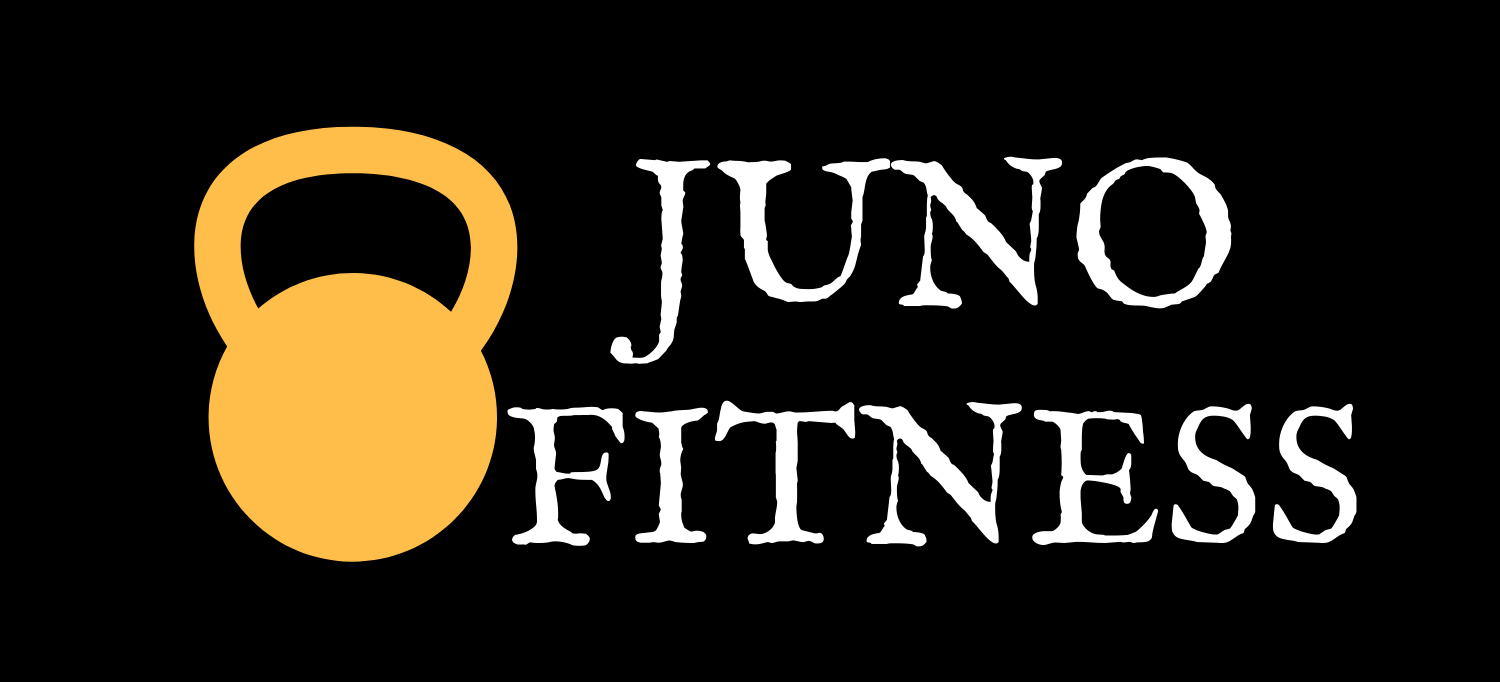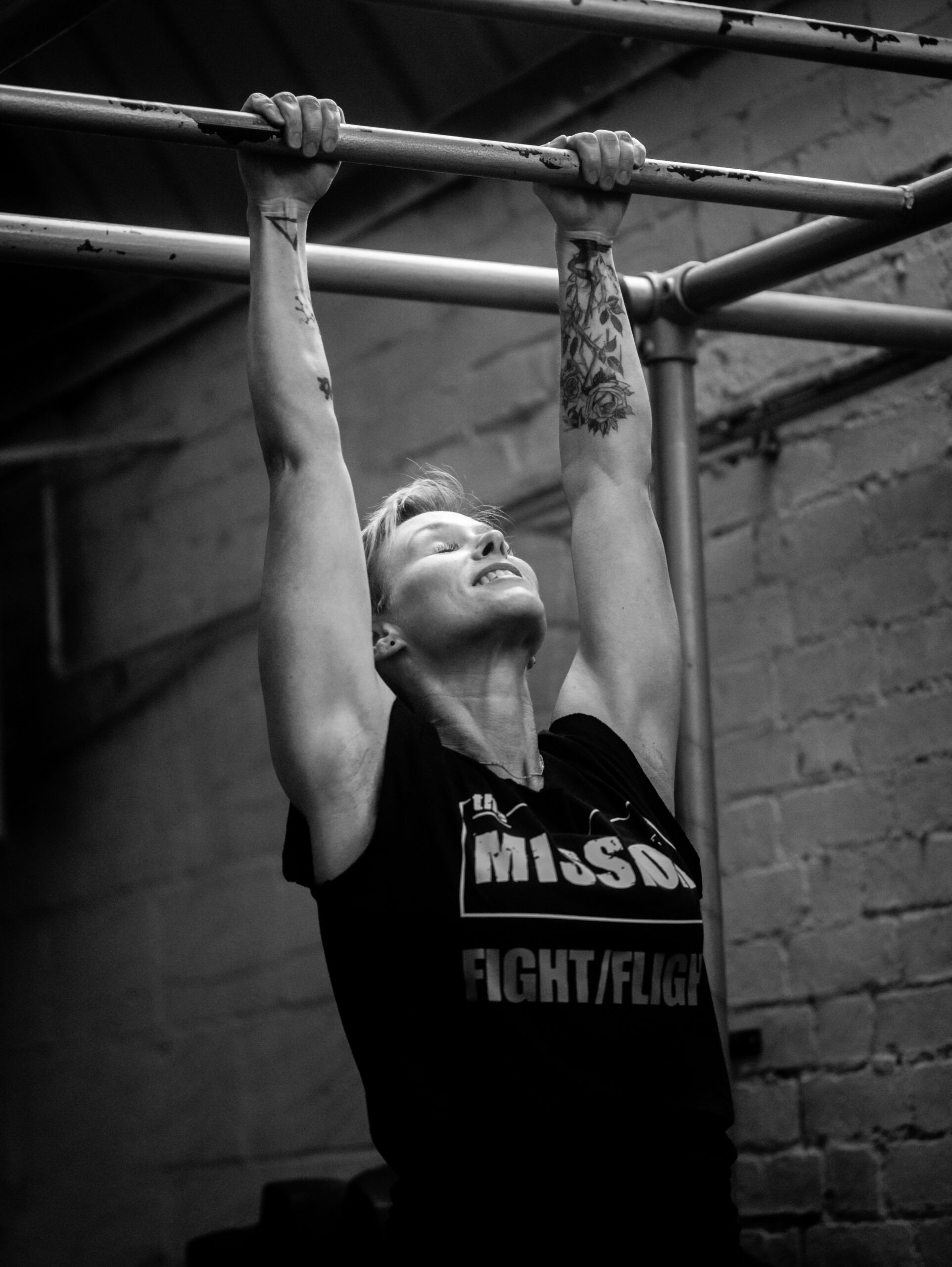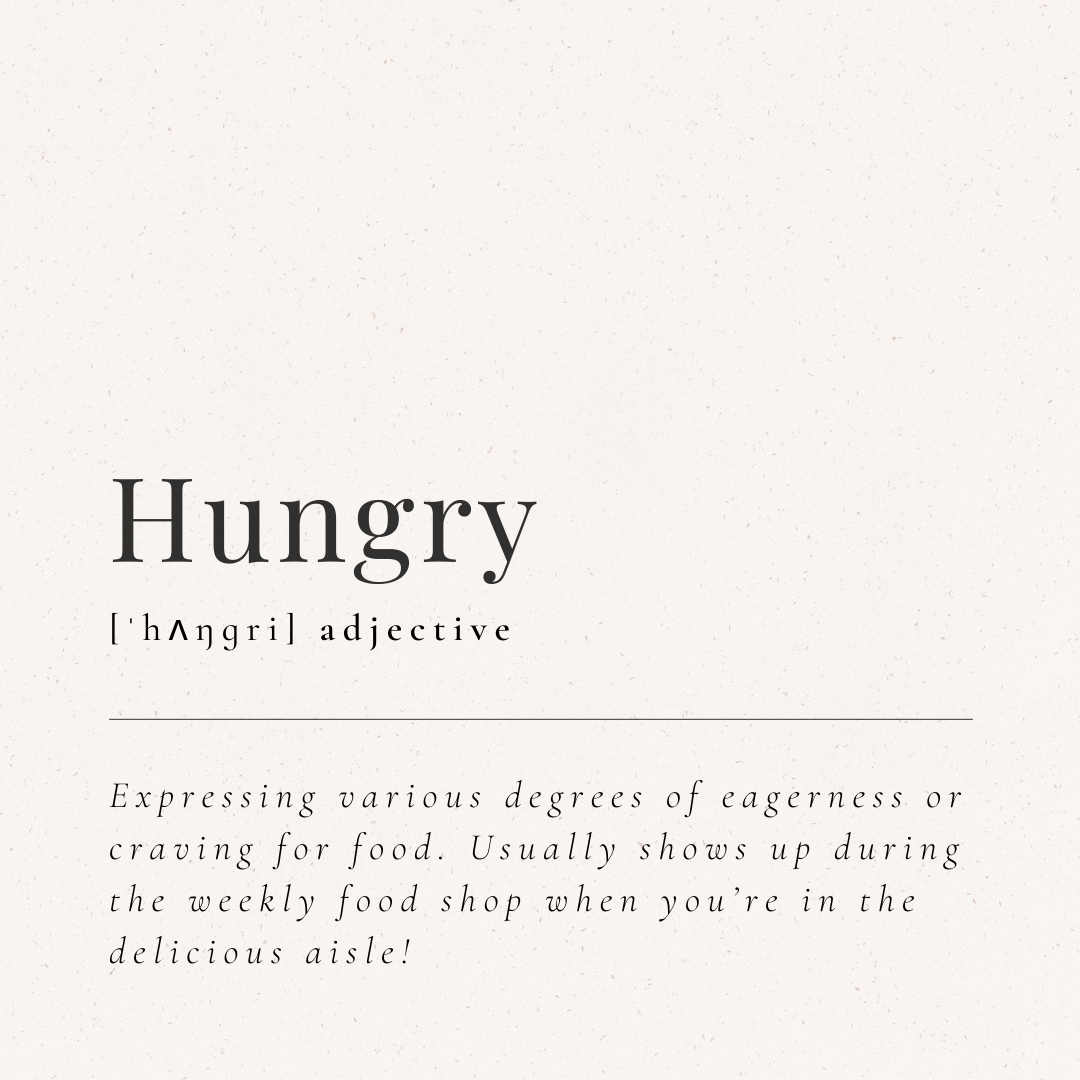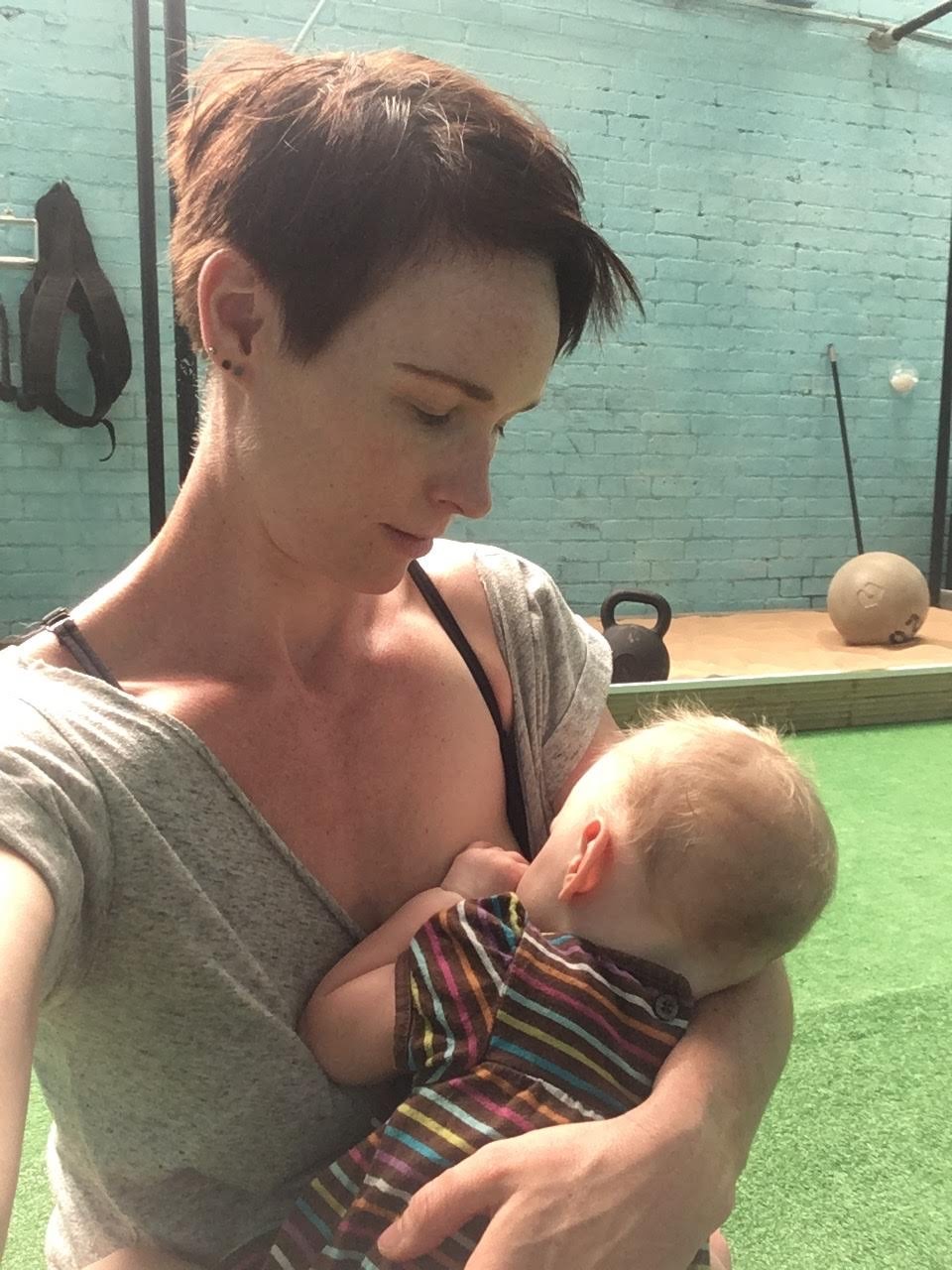Something changed me from being someone who thought about how much and what kind of food I ate, probably every ten minutes of every day, to someone who barely considers it, except when she’s hungry or doing the weekly food shop.
I work in fitness, an industry that is hugely about aesthetics. But if you know me, you know that what I teach is athletic ability, not body shape. So maybe it doesn’t surprise you to know that I have a very relaxed attitude to your diet: I care in as much as it pertains to your ability to fuel and recover from your workouts, and I care that you find it easy and enjoyable to choose and eat food. I have the same attitude to my own diet.
This has not always been the case.
20-30(ish) year old me is a next-level variation of her.
Some notes on things she did:
- Had rigid mealtimes, that I desperately responded to – wake up: immediately eat, 12noon: I clock-watched for at least an hour before, dinner: planned it all afternoon and started cooking way too early.
- Meals were “big”, but mainly full of vegetables, which only temporarily filled me up. Binge-ate cereal from 9pm (no sooner) until I went to bed.
- Treated calories in calories out like a game – apps, online calculators, you name it I loved it.
- Had to keep a wardrobe of clothes that were too big, and too small, because I regularly grew in and out of them.
- Thought I was addicted to sugar. Replaced it with artificial sweeteners. Had so much of them my body started rejecting my tattoos because it was so full of artificial substances. Turns out I was just chronically hungry.
- Couldn’t enjoy spending more than a couple of hours outside at social or kids play events because my blood sugar was constantly low from choosing low calorie meals and snacks to “keep me going”.
- Considered breastfeeding and carrying my babies in slings as weight loss tools.
I am so ashamed to say that last one.
So, none of the above were the red flags of my teenage years, which had all the symptoms of anorexia.
I looked normal.
I acted generally normal, in ways accepted as being normal for a woman, anyway – choosing salads, refusing biscuits, not demonstrating my own appetite.
But none of this was normal. And there seemed to be no way out.
Until people started asking me to help them lose weight as part of my job as a fitness coach, which, for a while, I did.
Then I started writing a course, which actually never saw the light of day, but in the process of this course I started writing about responding to hunger and fullness signals, and eating mindfully.
I remember stopping mid-sentence as I wrote. I realised that I didn’t know how to coach any further than simply saying literally what I’d already said: “respond to your hunger and fullness, and eat mindfully”.
I realised that I was in no way equipped to teach other people to know what and how to eat when I couldn’t even do that myself. That day was about 6 years ago; that’s how long it’s taken for me to be able to talk about it.
So I googled.
I discovered intuitive eating, and the many, many books and resources and Instagram accounts devoted to the subject. Initially I was looking for resources to use for my course, but in the process, I began the long road to fixing myself.
Some of the biggest and most important things I learned which helped to slowly put the brakes on my behaviour are written in the rest of this blog.
 I want to first talk about what dieting is to us, today. For some, and this goes back a few generations, it’s ostensibly about scale weight loss achieved by externally controlled eating, so Slimming World, Weight Watchers, meal replacements, MyFitnessPal, counting calories, tracking, fasting etc.
I want to first talk about what dieting is to us, today. For some, and this goes back a few generations, it’s ostensibly about scale weight loss achieved by externally controlled eating, so Slimming World, Weight Watchers, meal replacements, MyFitnessPal, counting calories, tracking, fasting etc.
For others, or perhaps as an updated version of the above, eating behaviour and food choices have tended to become less about scale weight and more about something that we can use to signify our identity as fit and healthy – whilst low-key still being a tool to manipulate our aesthetics.
It’s very unusual to see a “fitness person” in your life or on social media who does not have a set of rules and beliefs about what they eat to go along with the fitness piece. Fitness and weight loss/control are still tied up as one and the same thing in so many conversations, one and offline. The actual relationship between fitness, weight and health is something I’m going to get to further down in this post; in a way that might surprise you.
The roots of using food restriction to control our bodies stems back to having a learnt awareness of our shape and weight, and acting in accordance with maintaining it at what we’re taught it should be (thinner, of course). Or perhaps it’s more accurate to say: “what we’re taught it should NOT be” (fat, of course).
And this is taught to us from childhood. You can sit here now for a minute and consider the influences on you through childhood to adulthood – from parents telling us to finish everything on our plates, to mothers being on diets and vocally hating their bodies, to other kids commenting on our bodies, to the changing concepts of what foods are “good” and “bad”, through hundreds of cultural references including a recently postnatal woman being weighed live on morning television. 
It’s like a software in our system that is almost impossible to delete. You can flood it with replacement software, but the system won’t forget the changes made by the weight loss software, and the world around us reminds us practically daily.
It’s no wonder that our relationship with food and eating comes with complex and deeply internalised sets of rules and emotions.
Leaving aside the “wellness”-based food trends for now, I want to bring this conversation to something we all recognise – the weight-centric relationship with food and eating.
To define dieting:
dieting = intentionally and consistently undermining your appetite, hunger and fullness signals to the extent that your body adapts by losing weight.
(The big diet companies will balk at this: “Not with our diet! You can eat what you like. In fact, it’s not even a diet at all! But yes, you will lose weight…but it’s not a diet!”)
Weight changes, down or up, are not inherently problematic. We change weight throughout our lives. If we were to test it, we even change weight throughout the day!
What IS problematic, is the direct conflating of weight change with a change in health status or attractiveness, and weight change as something that we have full responsibility and control over.
These are problematic because:
- Weight and health are not the same thing.
- Weight loss is not a behaviour that we can choose to do, or not.
- Keeping us distracted by our bodyweight is a tool to stop us from fully participating in the world. “A culture fixated on female thinness is not an obsession about female beauty, but an obsession about female obedience. Dieting is the most potent political sedative in women’s history; a quietly mad population is a tractable one.” Naomi Wolf.
- Read point 4) again, the quote lit a fire in me when I first read it.
- These graphs:
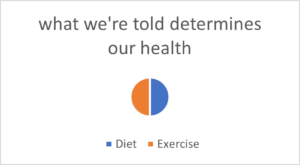
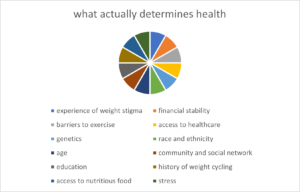
More examples here https://www.who.int/health-topics/social-determinants-of-health
Weight loss itself is not inherently problematic:
intentional weight loss is. “There is no ethical way to pursue intentional weight loss” (quote: @ChristinaMontalvo, find her on instagram) To purposefully lose weight, we must undermine our bodies’ complex survival mechanisms, and that does not come without consequences.
Consequences
- Dieting is the biggest predictor of weight gain*
*I want to specify for this point; body fat gain. Weight made up of bone mass and muscle is hard-won, highly valuable weight that it’s literally my job to create.
And
- Every subsequent diet makes a body better at gaining and holding onto body fat.
And
- Weight cycling (going on and off diets, losing and gaining body fat repeatedly) is “an independent risk factor [irrespective of weight] for cardiovascular disease, inflammation, high blood pressure and insulin resistance”
The things obesity is widely blamed for ^
“Two large studies showed that weight cycling accounts for all the excess mortality that had been linked to body size” (Tribole, E., Resch, E. (2020) Intuitive Eating, pg 29)
In plain English: the very thing that society and the medical profession tells us TO do – keep trying to lose weight so that we aren’t at risk of diseases caused by excess body fat – is actually a major cause of those diseases, without taking into account the myriad and complex variables that contribute to our health, as illustrated in the charts above.
So why DO our bodies resist our repeated efforts to control our weight? Or, why do diets “not work”?
Basically, it’s because our bodies still have a good few million year to evolve from the hunter-gatherers that we are. We are still working with stone-age metabolisms.
The Paleolithic era (the Stone Age) spans from about 2.6 million years ago to around 10,000 years ago. Around 10,000 years ago, humans became farmers, cultivating crops for food production. In the grand timeline of human existence, we were hunter-gatherers for a whopping 99% of the journey, and farmers only 0.38%.
Times of famine have been part of human survival for millions of years. We wouldn’t have survived this long without bodies that are acutely adapted to survive famine. We are damn good at resisting famine.
To survive famine, human metabolism slows down and stores energy as fat so we can stay moving and alive. More hunger hormones are produced so humans actively seek out food more often, because it’s scarce. Fullness hormones are reduced so humans eat more than they otherwise would, to stave off hunger longer between food finds. We even think about food more frequently, so we don’t get distracted and miss a potential opportunity to eat.
How much of this sounds like what you experience when you’re trying to lose weight or restrict what you eat.
All of it, right? Yet they’re all things we consider weaknesses in our ability to follow a diet or eating style.
And with our bodies becoming better at resisting famine each time we’re presented with one, the only winners here are diet companies. Anyone who makes money out of your natural inclination to feed yourself completely, succeeds when you try to override your instincts to take in enough energy.

The elephant(s) in the room here is, and I can hear you thinking it, “what about the health risks of having too much body fat?” and “but I want to look better”
This is a huge topic that I’m only going to touch upon below and point you in the direction of my Required Reading to learn more.
Let me start with this: there IS a correlation between weight and health risks.
BUT (and they’re big buts):
- The more times a body has cycled up and down in weight, the more weight it’s likely to be storing.
- This weight cycling, kicked off by that very first diet, is the major cause of the health risks solely attributed to weight.
- Weight stigma (prejudice from medical staff, society and the internalised shame that comes from that) contributes to extremely low self-esteem, reduction in participation of exercise, eating disorders (hugely more prevalent than you think, in ALL body sizes), having health concerns dismissed and therefore missed by medical professionals. All of these contribute to the health risks solely attributed to weight.
- AND, if we look at this from a BMI perspective, a measurement that has been widely called out as inaccurate anyway, a body with higher bone density and amount of muscle mass will weigh more and often fit into the overweight category; many athletes do!
- Here’s my favourite one: the health risks of higher BMI are negated by behaviour. The following graph shows the link between hazard ratio by BMI (risk of all-cause mortality) and how many health behaviours someone partakes in (ie, fruits and vegetable intake, tobacco use, exercise, alcohol intake, sleep etc.) Even just partaking in four health behaviours sets an obese person at a lower risk of all-cause mortality than a normal weight person who has zero health behaviours.
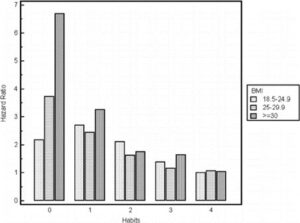
- This graph comes from the following piece of research: Matheson, Eric & King, Dana & Everett, Charles. (2012). Healthy Lifestyle Habits and Mortality in Overweight and Obese Individuals. Journal of the American Board of Family Medicine : JABFM. 25. 9-15. 10.3122/jabfm.2012.01.110164.
Louder for the people at the back:
Even just partaking in four health behaviours sets an obese person at a lower risk of all-cause mortality than a normal weight person who has zero health behaviours.
To touch upon beauty trends (and they are just that, trends)
A recent conversation I had with a woman of South Asian descent revealed that she has never in her life wanted to be thinner – quite the opposite – and was genuinely surprised when I described the anguished relationships most of the women I’ve worked with have with food their bodies. A guest blog post here gives more insight into this (she isn’t who I spoke to, but I came across this in my research).
The powerfully entitled “Fearing The Black Body: The Racial Origins of Fatphobia” here, gives more insight into how our current body ideals developed, and it doesn’t make for comfortable reading.
Following @alexlight_ldn on Instagram and reading her book, “You Are Not A Before Picture”, will shift how you start to think about modern beauty standards and bodyweight.
I encourage you to start critically thinking about beauty ideals, question where they came from, their validity, and change your standards of what beauty really is for you.
This is a long blog post so well done if you’ve got this far.
In summary:
Repeated dieting and weight cycling carries a shit load of risks: for eating disorders, mental health, and multiple comorbidities including obesity, type 2 diabetes, hypertension, cancer, bone fractures, and increased mortality.
Healthy habits, exercise and intuitive eating carry no such risks and in fact lead to reduced risk of all those things, whilst making you hugely more resilient against them, no matter what you weigh.
Remember: you are VERY well adapted to survival as a hunter-gatherer.
And as women, being able to free up brain space to participate in our roles as friends, mothers, daughters, partners, house plant carers, business owners, in our paid jobs, or weird little hobbies…
is rebellion.
.
Your friends don’t say to each other, “yeah let’s invite her, maybe she’ll have lost some weight”
Your partner doesn’t want to get naked with you because they wish you looked different naked.
At your funeral, nobody will say “she was nice enough, but I wish she were sexier”.
One of the biggest takeaways I want for you is the following:
The impact you have on your body’s ability to settle on its healthiest weight, and your ability to like yourself, happens when you are taking the most care of yourself.
Read it again ^.
Next episode: Principle 2 – What happens when you stop dieting and what hungry feels like.
